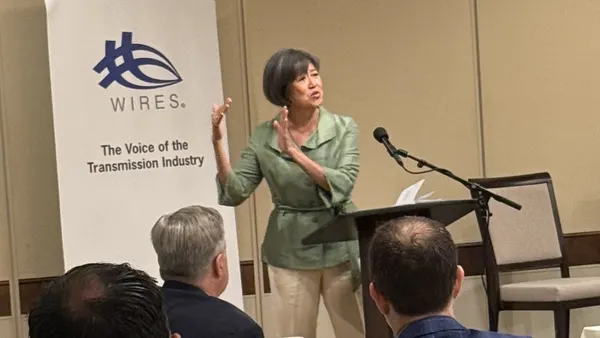Dive Brief:
- S&P Global reports that Entergy is exploring options to sell its Pilgrim and Palisades nuclear plants to a new joint venture aimed at purchasing and decommissioning shuttered facilities.
- AREVA Nuclear Materials and NorthStar last week announced the formation of a new joint venture (Accelerated Decommissioning Partners) to purchase and decommission nuclear plants, providing the necessary management, regulatory and safety expertise to permanently mothball the facilities.
- Entergy plans to shutter its Palisades nuclear plant in Michigan in 2018, and its Pilgrim plant in Massachusetts by 2019.
Dive Insight:
Given the struggles of many nuclear facilities in organized markets, Areva and NorthStar's venture appears well-timed: in several regions where there is cheap natural gas, nuclear plant operators are considering early closure.
The companies said their joint venture will offer generators "an innovative approach to accelerate decommissioning of shutdown nuclear power facilities." The process includes a "complete and permanent" transfer of ownership, including used nuclear fuel.
Based in Washington, D.C., AREVA Nuclear Materials is the U.S. subsidiary of global New AREVA, which provides nuclear decommissioning services. NorthStar is based in New York and provides a range of services including environmental assessments, deconstruction and demolition, and nuclear decommissioning.
According to SNL Energy, a spokesman for Entergy confirmed the company had begun an "exploratory process" for the possible plant sales.
Entergy's decision to shutter the Pilgrim facility was based on a range of financial factors, including low current and predicted wholesale energy prices, largely due to large quantities of cheap shale gas on the market. Power prices have fallen about $10/MWh, which Entergy estimated as an annual loss of more than $40 million in revenues for Pilgrim.
The company's decision on the Palisades plant came after it was able to strike a deal with Consumers Energy to terminate a power purchase agreement for the generation. The company believes ending the contract early will save ratepayers $172 million over four years.













